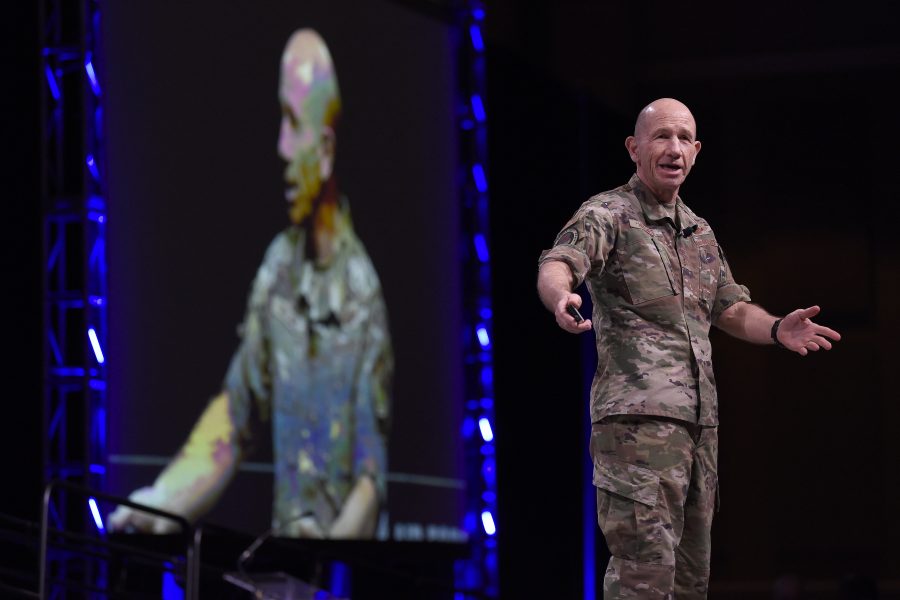ORLANDO, Fla.—The Army has a legitimate interest in long-range fires and satellites with which to target them, but the services need to “deconflict” their strategies to avoid excessive duplication of effort, Air Combat Command chief Gen. Mike Holmes said in a Feb. 27 press conference.
The Army has in recent months been discussing the use of long-range missiles—particularly new hypersonic weapons—to conduct Suppression of Enemy Air Defenses (SEAD), Destruction of Enemy Air Defenses (DEAD), and interdiction—roles traditionally fulfilled by USAF. Asked if he sees a “Key West” conflict—referencing the 1948 agreement between the services on how to divide roles and missions—Holmes said, “I don’t,” but suggested some high-level refereeing may be needed.
“We don’t have a monopoly on national technical means to go find targets,” Holmes said of Russia and China. Their long-range fires “are ubiquitous, and designed to keep us at a distance, and go after our strengths. I’m happy we’re building additional long-range fires capabilities, but we just have to make sure we’re able to target them.”
The Army has been discussing fielding a “low-earth orbit constellation” of satellites to aid in targeting its surface-to-surface missiles, Holmes said, as have the Air Force and Navy. Vice Chairman of the Joint Chiefs Gen. John Hyten is “working to push us together” and this represents “a great opportunity to collaborate and cooperate in the sensors system we all need to close that kill chain, and then having multiple long-range fire options.”
Not all long-range fires will be available at all times, Holmes said, so there’s “goodness” in some redundancy, but, “We’ll have to decide how much redundancy we can afford … with everything else we need to do.”
Holmes urged that the services “focus on making sure we have the command and control that lets us use the weapons that we have in the different services, and deconflict the airspace and fires in the way you have to do it.”
He allowed that the Army must counter Russia’s “long-range strike complex” that relies on geo-location of emissions and unmanned aircraft to target that country’s adversaries.
“I understand why they’re pursuing weapon systems that will let them do that. I think the key is, that as we work together on Joint All-Domain Command and Control, that we include systems that will let us coordinate and deconflict that work.”
Holmes said long-range strike should be assessed as to which service is in the right position to perform it. “Who can do it fastest and best?” he asked
